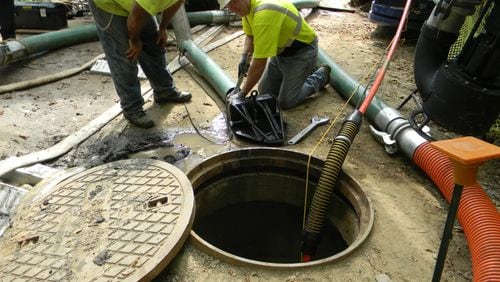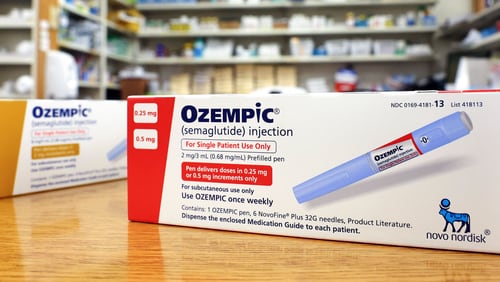Atlanta voters will decide in the May 21 primary election if they want to renew a sales tax to fund water and sewer projects.
The city was sued in 1995 by federal and state environmental agencies and the Chattahoochee Riverkeeper organization. The groups said the city’s aging infrastructure resulted in constant sewer overflows that polluted the Chattahoochee River and other waterways.
The city was put under two federal consent decrees in 1998 and 1999 to address the problems expected to cost about $4 billion.
In 2004, Atlanta voters approved a 1-cent Municipal Option Sales Tax (MOST) to aid in funding projects to address sewer overflows, comply with clean water regulations and repair its aging sewer infrastructure.
The MOST is a 1-cent tax on most goods purchased and services performed inside the city of Atlanta that are subject to sales tax, except motor vehicle sales. The tax is paid by residents and visitors to the city.
Voters approved reimposing the MOST again in 2008, 2012, 2016 and 2020.
Since October 2004, the MOST has generated more than $1.8 billion in revenue and helped fund more than $2.3 billion in sewer system investment, according to the Department of Watershed.
City officials estimate if the MOST is renewed on May 21, it would generate about $1.1 billion over the next four years, or about $250 million each year, to fund infrastructure improvements to the city’s water and sewer system.
If approved, the MOST tax would go into effect Oct. 1 and continue through Sept. 30, 2028.
If the MOST vote fails, city officials said they would likely have to raise water and sewer rates on residents and businesses. The city estimates that the MOST has helped avoid 25% increases in water and sewer rates since 2004.
Early voting for the May 21 election begins April 29 and runs through May 17. Saturday voting will be held May 4 and May 11.
The Fulton County Board of Elections and Registration will conduct the election. Click here for sample ballots. Locations for early voting can be found by clicking here.
Credit: Rough Draft Atlanta
Credit: Rough Draft Atlanta
MEET OUR PARTNER
Today’s story comes from our partner Rough Draft Atlanta. Rough Draft publishes Reporter Newspapers, community newspapers in Brookhaven, Buckhead, Dunwoody, and Sandy Springs. Visit them online at RoughDraftAtlanta.com or on Instagram @RoughDraftATL.
If you have any feedback or questions about our partnerships, you can contact Senior Manager of Partnerships Nicole Williams via email at nicole.williams@ajc.com.
About the Author








